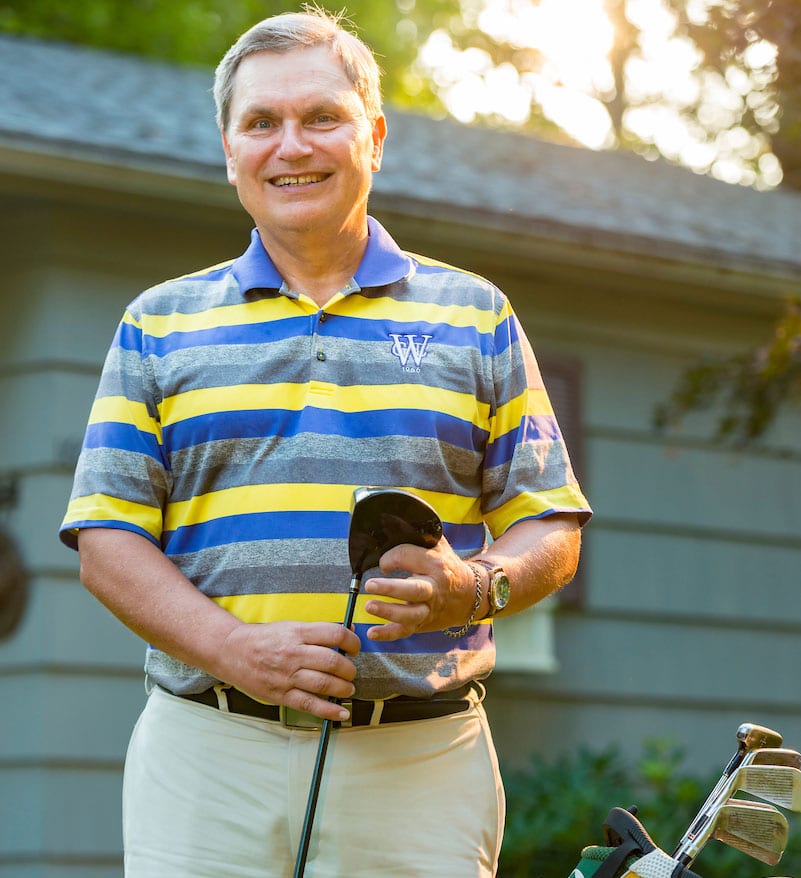Often when the body cannot do something for itself a device can help, as Michael Carey of Colchester discovered when surgery to remove prostate cancer in 2012 left him struggling with incontinence.
“The radical prostatectomy resulted in incontinence which worsened over a number of years,” said the 62-year-old attorney. “When I first had the surgery, they advised me to carry a duffle bag with extra underwear in it while I recovered. I never stopped carrying the bag.”
Many men who have prostate cancer surgery experience urinary incontinence afterward, but it’s usually short term. But, for Carey, there were days when changing underwear wasn’t enough and he’d have to change his pants as well. Then he started avoiding long car trips, work-related meetings and committee gatherings that he’d always attended because it became impossible to drive the distance, sit through the session and drive home without anxiety and mess. He even started skipping tee times.
“I’d get soaked playing golf, which you never really get used to,” he said, adding that absorbent pads were often not enough. His doctor sent him to Dr. Richard Kershen, a board-certified urologist with the Tallwood Urology & Kidney Institute at Hartford HealthCare, who mentioned a procedure called urinary sphincter replacement (AUS) surgery.
The procedure — which has been used for more than 40 years and is considered the best treatment for male stress urinary incontinence — involves surgical implantation of a pump and inflatable cuff around the urethra that is manually inflated and deflated in order to urinate.
“AUS helps keep the urethra closed when you can’t,” Carey said.
He had the surgery in 2016, returning to Dr. Kershen’s office a month later to have the device activated.
“It’s worked like a charm ever since. I could immediately see the change — I had been leaking constantly and when he activated the AUS, it stopped,” Carey said. “It’s as close to the way it was before the prostatectomy as it’s going to get.”
Dr. Kershen said results like this are not atypical.
“Men do not need to become homebound because of incontinence because it’s completely curable,” he said.
Life has basically returned to normal for Carey, who golfs regularly and started going to meetings and taking road trips again.
“I don’t have to worry about soiling the chair,” he said of sitting through work-related meetings. “It’s a miraculous outcome.”
For more information on post-prostatectomy treatment available at Hartford HealthCare Tallwood Urology & Kidney Institute, click here.

